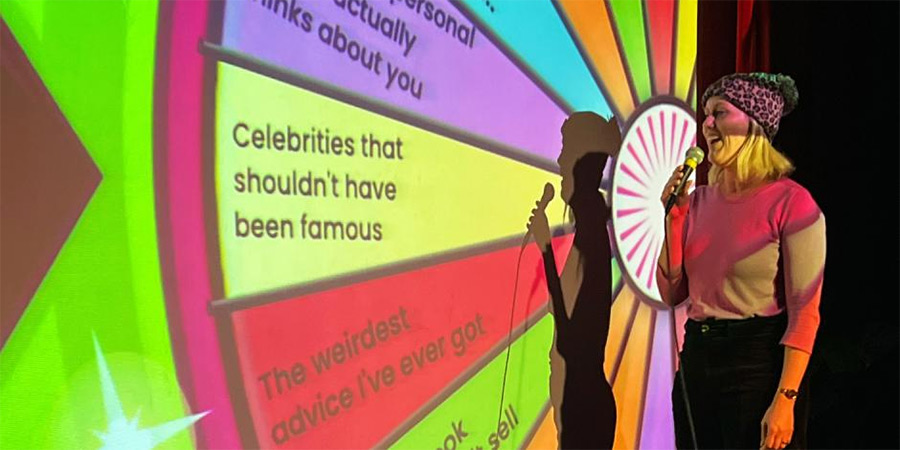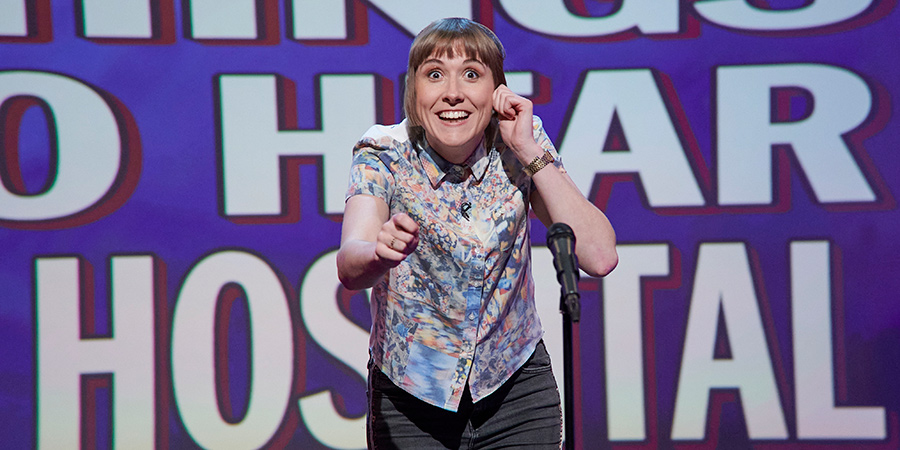Wheel of Fortune

Improvised stand-up is fun for audiences - but what about the acts?
Now here's a good idea. As we speak, the annual Melbourne International Comedy Festival has just begun its 2025 run, with a huge influx of stand-up talent descending on the city from across the globe. And every Friday - and for several Saturdays too - a bunch of those acts will take part in a concept that does sound ripe with comic potential: Comedy Roulette.
It's a pretty simple format to grasp, based on the casino classic. Audience members spin a modified roulette wheel and on each number there's a subject for the acts to then joke about. As the show's blurb puts it, 'comedians deliver both sharp sets and off-the-cuff jokes based on surprise topics. From "Worst date story" to "self-help book titles that won't sell..."' The excellent Carl Donnelly was on board for the first one, a man you can imagine riffing a routine about anything Comedy Roulette could throw at him.
For a lot of other comics, that might be a lot more nerve-wracking, however, coming up with stuff from scratch. Not every funny person is built for improv, after all, and even good ad-libbers can flounder when put on the spot and expected to deliver the goods, from a standing start.
The unique thing with Comedy Roulette, by the sound of it, is the varied length of responses the acts can do. Otherwise it may loosely remind you of a couple of previous comedy formats.

First up there's Mock The Week's regular round Scenes We'd Like to See, in which comics stepped up and acted out a quick gag in response to a scenario thrown at them by host Dara O Briain. This was classic competitive Mock The Week stuff, rather than each comic getting a definite turn, and if anyone couldn't think of anything, they could just stand on the sidelines. Although just chickening out altogether is arguably more embarrassing than having a gag fall flat.
The other set-up that also rings a big bell is Set List, the hit live show that also transferred to TV just over a decade ago. The idea: imagine you're given a brand-new stand-up set-list, while you're alone on stage, and have to come up with new bits on the spot. Half the fun here - for the audience, at least - was the evident drama for each comic as another new subject was unveiled.
The TV show only lasted for one season but went big on the idea, with some huge guest comics (Robin Williams, Ross Noble, Frank Skinner) and an elaborate behind-the-scenes aspect built in, where we'd see all the pre-gig nerves and post-gig congratulations or commiserations.
Perhaps one reason that show didn't continue was getting enough big guest comics to commit to it, on TV. Stand-up is already one of those jobs that most regular offstage folk think sounds absolutely hellish, but doing it with no idea of what you're going to say beforehand: scary stuff. At least most live improv is a group activity, so you can often revert to gag-feeding straight-man if the muse isn't with you. But live improvised stand-up? To many people, Russian roulette probably sounds preferable.
